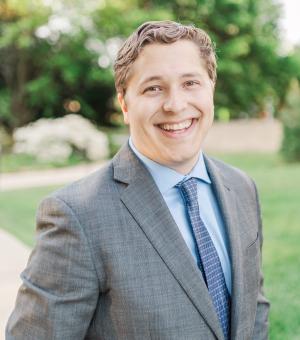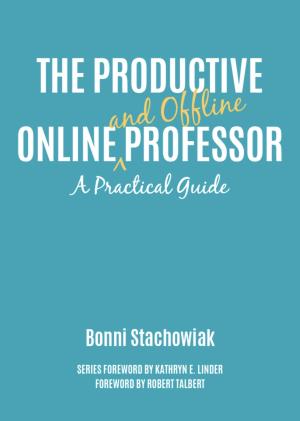Resources by Zachary Wooten

Abstract: This is the second part of a collection of poems showcasing the personal exploration of a teaching identity grounded in grief experiences, one of the aspects of identity educators carry into the classroom. The use of poetry permits an open theological exploration in which the author examines aspects of his life through the lens of religious allusions and imagery including the creation narratives, Cain and Abel, and Hannah. Specifically, the author engages the experience of growing up in a family impacted by the death of his brother who died prior to the author’s own birth. The experience of being a “substitute” and a “teacher” is represented within the poetry. The series begins with childhood encounters with loss and moves through life and teaching experiences marked by grief. Good and Evil: The Second Account of Creation When I first learned there were two accounts of creation, I was confused. Then, I was delighted. Maybe this one made more sense. I can’t remember if this optimism was a default disposition or a performance to please. Now it’s both. In the day that the Lord God made my family, no ambition was yet in my mind and no anxiety had yet sprung up– for I didn’t yet know what those words meant, and there was no teacher there to help. But a sinkhole would envelop the earth, and I couldn’t breathe enough to cry– Then the Lord God formed my faith from the ashes of the dead, and breathed into my nostrils the breath of new life, and I became a living being, well, living enough. And like Adam, such a miraculous origin story couldn’t keep me from ruining everything. But the Lord God kept busy, planting gardens and putting people in them. So I likewise kept busy, making more work for myself, too: a research agenda. I was never good at gardening, so when God went east to garden, I went west for my formation. Fortunately, God was there, too. I tried to be pleasant and good, like the trees and those worthy of affection, but the tree of knowledge always seemed more appealing to me than the tree of life. That’s why I ended up in graduate school— the rivers’ pull stronger than I expected. Now I teach ethics to teenagers and wonder if any of us were supposed to know the difference between good and evil in the beginning. The Ordination to the Professoriate The Lord closed Hannah’s womb, and her rival mocked her. Hannah wept and wouldn’t eat. My parents wept but couldn’t stop eating. Hannah made a deal with God: “If you give me a boy, then he will be yours.” Dad told me his deal was the same. Eli said she was drunk, though she was intoxicated only by despair. I still shiver thinking of the time he was both. Sure enough, Samuel was born. And soon they ordained Hannah’s grief. Grief– the great teacher. Samuel and I – bargaining chips for the divine. What will they do when they find out they hired Anxiety disguised as achievement? Anxiety with a capital A. Untenable seeking tenure-track. Ordination is supposed to be a reordering, and I was always great at following orders, so it seemed a bit inevitable. Hannah dropped Samuel off with the priest, and the bus dropped me off at the megachurch. “Here I am,” we both muttered.

Abstract: This is the first part of a collection of poems showcasing the personal exploration of a teaching identity grounded in grief experiences, one of the aspects of identity educators carry into the classroom. The use of poetry permits an open theological exploration in which the author examines aspects of his life through the lens of religious allusions and imagery including the creation narratives, Cain and Abel, and Hannah. Specifically, the author engages the experience of growing up in a family impacted by the death of his brother who died prior to the author’s own birth. The experience of being a “substitute” and a “teacher” is represented within the poetry. The series begins with childhood encounters with loss and moves through life and teaching experiences marked by grief. In the Beginning: The First Account of Creation Orientation: As the students and their families file into a multipurpose room somehow simultaneously drab and new, I allow my mind to wonder about the myths these students carry about their families’ creation. Without meaning to, my mind falls backward, remembering how in the beginning, when God created my family, I must’ve been somewhere in the formless void as darkness began to cover the face of my parents, while a wind of grief swept over the face of my community. I recall the darkness hiding them on his birthday, the anniversary of his death, and the holidays. I wish there weren't so many holidays. Then the great Teacher said, “Let there be Zachary,” and there I was. And I saw that I was supposed to be good, and so I separated myself from the darkness… or at least, I tried. My teachers loved how hard I tried. I called the light ours, and I called the darkness mine. And there was anxiety, and there was laughter: my childhood. I come to my senses. Anxiety and laughter linger as I pick up the microphone and welcome my new students to the end of their childhoods. “Today is the beginning…” Accidental Cain Reading my course evaluations, I realize I may be too sensitive. “This reading was impossible.” one student wrote. “Literally impossible.” I begin my investigation and piece together the evidence for why my textual selections missed the mark. But then I get lost in another long-winded lecture to an audience of one, thinking about how we are here, together, right now, on this floating rock, in outer space, something that’s always seemed impossible to me. Literally impossible. Why am I here? It’s impossible that I killed my brother. I was born two years after he died. Literally impossible. Yet until the age of twelve I asked myself the questions the Lord asked Cain, “Where is your brother?” “What have you done?” I listened, and I heard my brother’s blood crying out from the ground. It was sad music that I could barely hear, but it left a ringing in my ear. So I became a wonder-er and a wanderer, and I made my way to the land of Nod, east of Eden, But even after I turned twelve, and then seventeen, and then thirty the ringing never went away. I was too scared to ask to watch the home movies so I could know what he sounded like. I wondered what his embrace would feel like– would he have been the kind of big brother that hugged his baby brother, or would he have withheld his affection to toughen me up? Maybe I wouldn’t have been so sensitive, then. I pictured the car crashing again and again. Did he die upon impact? Did he know he was dying? Was there part of him that ever wanted to die? Mom wanted to die, so maybe that’s why she loves him so much. Maybe they had that in common. I don’t think we’d have much in common at all. An unnecessary worry, but such worries are my currency. Why wouldn’t God just accept Cain’s sacrifice? Maybe Cain was too sensitive, too. Maybe I’ll find a video for next semester. Sonny In moments of solitude, I stare intently at the strange wooden case of what’s left of your life, a child playing secret agent, but feeling like a detective who is also the lead suspect. I examine the trophies and books and what I think is your wallet, with a note your teacher confiscated. You never were a fan of teachers, Dad said. I’m too afraid to open the case. I’m as trapped as your belongings: a carefully curated catastrophe. Now you show up in dreams and nightmares, and people chase you But you shush them, or you turn to mist. And I sit in a strange kind of envy, an outsider among those who miss Sonny.

What does it mean to be a productive professor in higher education? What would it feel like to have more peace and productivity? To have nothing fall through the cracks? The Productive Online and Offline Professor is written for today’s busy higher education professional. Through an exploration of what it means to make work meaningful, this book offers practical strategies and tips to support higher education professionals in efficiently managing and effectively using a wide range of technologies and productivity tools. Higher education instructors will find this guide helps them to fulfill their teaching roles with excellence and to build engaging relationships with students while also successfully managing other priorities in their professional and personal lives. The Productive Online Professor assists those who teach online and blended courses with managing their personal productivity. Faculty are often expected to provide support and feedback to learners outside of normal work hours in non-traditional classes. Programs that are designed with more asynchronous content may cause faculty to perceive that it is difficult to ever press the “off button” on their teaching.The author offers guidance and suggests software tools for streamlining communication and productivity that enable faculty to better balance their lives while giving rich feedback to students. Part 1 addresses the challenges in defining productivity and presents a working definition for the text. Part 2 describes the ability to communicate using both synchronous and asynchronous methods, along with ways of enriching such communication. Part 3 describes methods for finding, curating, and sharing relevant knowledge both within one’s courses and to a broader personal learning network (PLN). Part 4 examines specific tools for navigating the unique challenges of productivity while teaching online. It includes ways to grade more productively while still providing rich feedback to students. Part 5 shares techniques for keeping one’s course materials current and relevant in the most efficient ways possible. The Productive Online Professor is a practical guide for how to provide high quality online classes to diverse students. This book shares specific technology and other tools that may be used in charting a course toward greater productivity. It is intended to be a professional resource for fulfilling our roles with excellence and joy, while managing other priorities in our personal and professional lives.(From the Publisher)